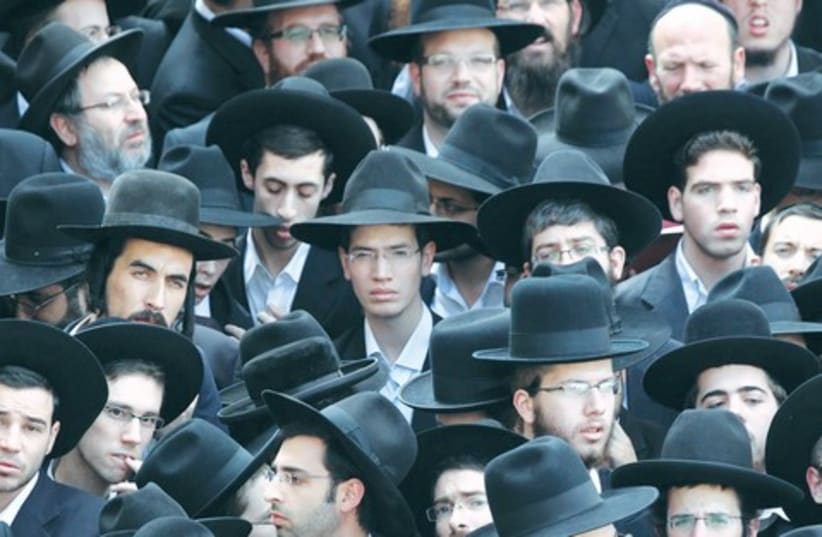Prime Minister Binyamin Netanyahu should get personally involved in stopping criminal sanctions on ultra-Orthodox men who refuse to serve in the IDF or civilian service, Economy Minister Naftali Bennett wrote on Tuesday night.
“As you know, the coalition agreement includes a joint outline for equality in the burden of service,” the Bayit Yehudi chairman wrote in a letter to Netanyahu. “The outline included several principles, including not using criminal sanctions. We agreed on the understanding that criminal sanctions could undermine the purpose of the [haredi service] bill.”Nevertheless, Bennett pointed out, the ministerial committee on the matter went against the coalition to include criminal sanctions.
“The central claim of [the ministerial committee] was that the rest of the outline cannot happen [without criminal sanctions] following a legal opinion on the matter,” Bennett continued. “The Knesset committee led by MK Ayelet Shaked [Bayit Yehudi] has found that legal advisers unanimously say that the purpose of the bill can be reached without needing criminal sanctions by using several alternatives tabled by the committee.”The economy minister asked Netanyahu to immediately call a meeting to come up with a bill that will be acceptable to all members of the coalition and fit the conditions of the coalition agreement.The main issue dividing the members of the Knesset’s committee reviewing the bill is whether or not to apply criminal or economic sanctions to someone refusing to serve. The disagreement is not on coalition and opposition lines, with Yesh Atid favoring criminal and Bayit Yehudi supporting economic sanctions.Those in favor of criminal sanctions, which are applicable to all Jewish citizens other than haredim, insist this is the only way to ensure equality before the law as well as preserving the IDF’s conscription based system and the principle of “the people’s army,” as it is called.Yesh Atid, which is leading the charge for criminal sanctions, declined to comment on Bennett’s letter.Opponents to criminal sanctions say that criminalizing an ideological position of as large a population sector as the ultra-Orthodox community will damage the notion of the rule of law, since it will not be possible to implement the sanctions’ provisions that stipulate imprisonment for anyone refusing to serve.In addition, they argue that criminalization will reverse the significant progress made in haredi enlistment since 2007.In 2011, 28 percent of eligible haredi men for that annual intake enlisted for military or national service.Meanwhile, MK Omer Bar- Lev (Labor) is working on a middle ground proposal, in which economic sanctions would be used to ensure most of those required to enlist do so, but criminal sanctions would be put into place for the most extreme cases.Religious freedom NGO Hiddush director-general Uri Regev expressed support for Bennett, calling criminal sanctions “a farce... that won’t bring even one haredi man to enlist and will turn equality in the burden and the rule of law into a sad joke.”“Whoever really wants to enlist haredim and not just argue with them must use indirect pressure like economic sanctions, which are efficient and just,” Regev added.At the same time, Regev criticized Bennett for supporting draft exceptions for 50,000 yeshiva students who will be 18 years old when the law goes into effect, saying he hopes Bennett will wake up and change his mind.Jeremy Sharon contributed to this report.